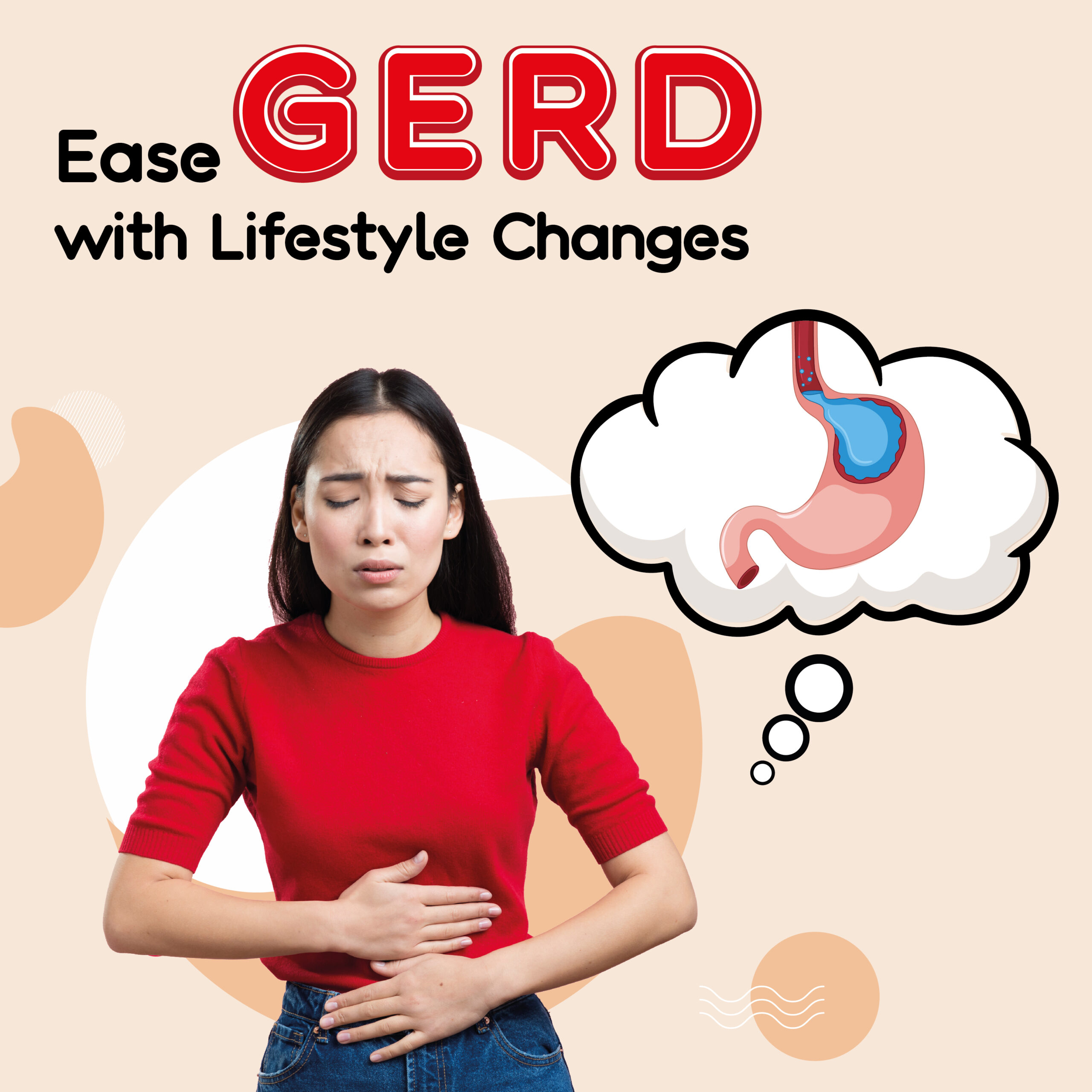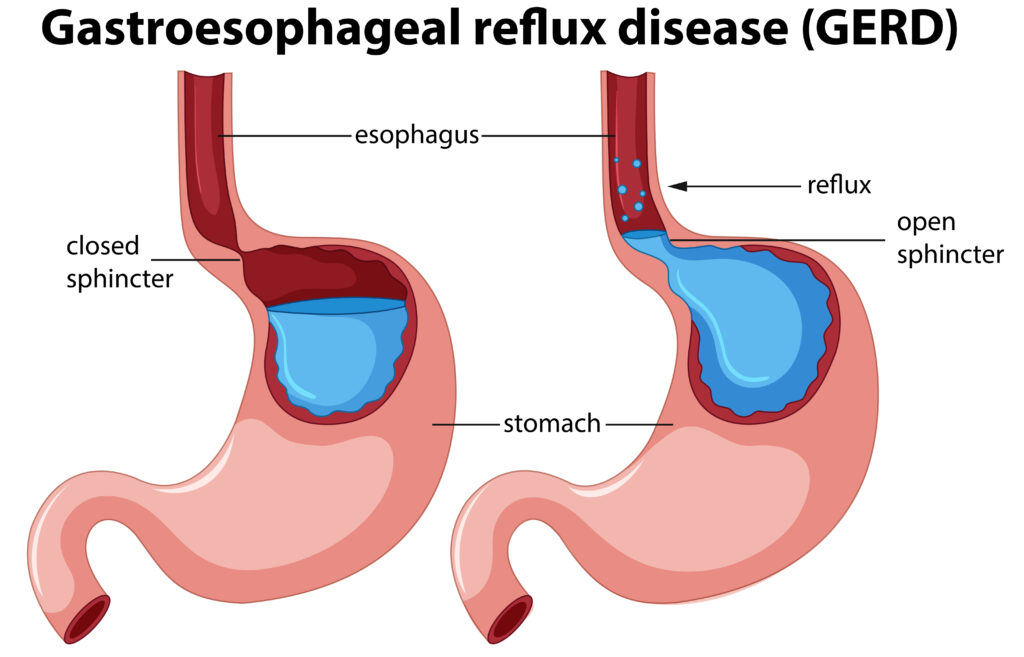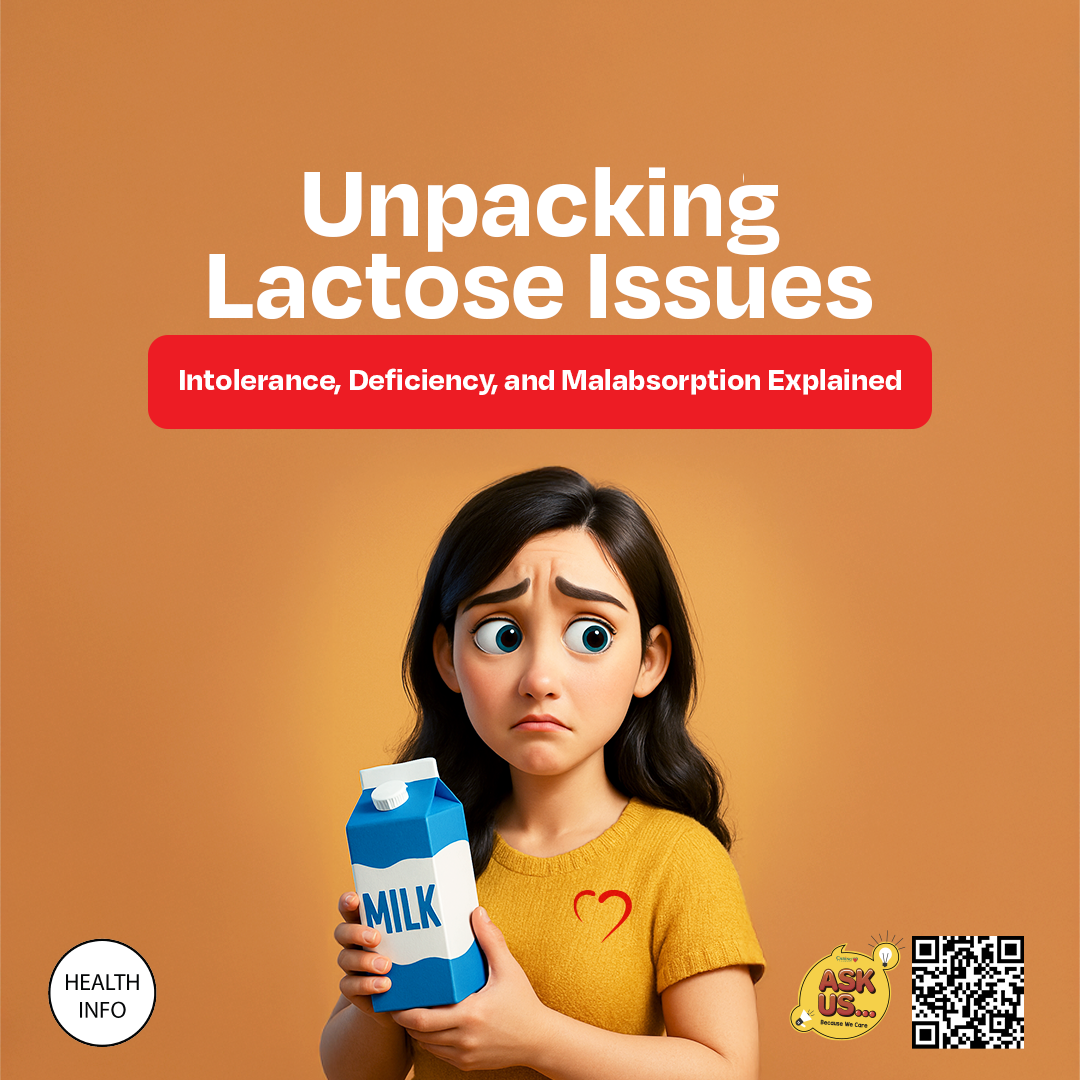- Home
- Health Center
- Health Info
- Ease GERD with Lifestyle Changes
Lifestyles
Ease GERD with Lifestyle Changes


What is GERD?
GERD stands for gastroesophageal reflux disease.1 It is defined as the retrograde passage of gastric contents from the stomach into the esophagus. The transient relaxation of lower esophageal sphincter of the stomach that allows acid flows back up. This condition irritates the lining of esophagus, commonly causes heartburn, bad breath, regurgitation and chest pain.
How does it occur
GERD occurs commonly in people who are1:
- Obese or overweight due to the increased pressure on the abdomen.
- Pregnant woman due to the increased pressure too.
- Taking certain medications such as some asthma medications, hypertensive medications, sedatives and antidepressants.
- Smoking or exposed to second-hand smoke.
- Bad eating habits such as taking heavy meals at night or before sleep, eating fatty or fried food too often.
Recognizing GERD
The main symptom of GERD is heartburn, in which the person feels a burning sensation behind the breastbone, it gets worse when he or she tries to lie down or bend over, and especially after eating food.
One might not experience heartburn as the symptom of GERD, such as bad breath, chronic cough, difficulty or pain when swallowing, and laryngitis.
Confusion between heartburn and heart attack
The main differences are2:
- Heartburn tends to be worse after eating and lying down. (Note that heart attack can happen after meal too)
- Heartburn can be relieved by medications that reduce stomach acid. (Example: antacids)
- Heartburn does not cause symptoms like breathlessness.
- Heartburn might cause belching and bloating whereas heart attack does not.
Practicing lifestyle changes to ease GERD
From food to lifestyle activities, there are a lot of ways to prevent GERD3.
Avoiding triggering food or drinks such as:
1.Meat
It tends to be high in cholesterol and fatty acids.
2.Oily food
Might cause relaxation of the lower esophageal sphincter in the stomach.
3.Calcium-rich food (Milk and cheese)
Sources of saturated fats.
4.Drinks
Carbonated beverage, caffeine-containing beverage, acidic drink and chocolates.
Quick fact about high cholesterol food
A study published in Alimentary Pharmacology and Therapeutics indicated that people who consumed food high in cholesterol and saturated fatty acid were more likely to experience GERD symptoms.4
Lifestyle changes
1.Lose weight
Cutting down the abdominal weight that presses on the stomach can prevent acid from rising up into the esophagus.
2.Loose-fitting clothing
Reduces abdominal pressure.
3.Eating habit
Never take heavy meals before bed. Increase the number of meals, but decrease the portion of it. Eat slowly and chew your food thoroughly before swallowing.
4.Do not lie down right after eating
Lying down with a full stomach increases the pressure on our lower esophageal sphincter (LES) that separates the stomach from the esophagus. This will cause acid to flow back easily and there you go, GERD. Wait at least two hours before you lie down after eating.
5.Raise the head of your bed
Leave it six inches higher than the foot of bed. This can be done by placing wood underneath the legs of the bed, or by putting a foam wedge under the upper half of your mattress. Lying at an incline reduces pressure on our LES.
6.Quit smoking
Smoking makes it harder for our LES to function normally.
Prevention is always better than cure. Practicing good eating habits and making appropriate lifestyle changes can make your gut healthier and happier!
Reference
- GERD: Symptoms, causes, and treatment [Internet]. Medicalnewstoday.com. 2018 [cited 21 June 2020]. Available from: https://www.medicalnewstoday.com/articles/14085#what-is-GERD
- Heart attack or heartburn? Differences between types of chest pain [Internet]. Medicalnewstoday.com. 2018 [cited 21 June 2020]. Available from: https://www.medicalnewstoday.com/articles/312964#differences_between_symptoms_of_heartburn_and_heart_attack
- Treatment Options for GERD | Everyday Health [Internet]. EverydayHealth.com. [cited 21 June 2020]. Available from: https://www.everydayhealth.com/gerd/guide/treatment/
- SHAPIRO M, GREEN C, et al. Assessment of dietary nutrients that influence perception of intra-oesophageal acid reflux events in patients with gastro-oesophageal reflux disease. Alimentary Pharmacology & Therapeutics. 2006;25(1):93-101.
Latest Health Info
Unpacking Lactose Issues: Intolerance, Deficiency, and Malabsorption Explained
Ever wonder why some people, or even yourself, are suffering from lactose intolerance? Lactose, the primary sugar in milk and ...
Detect to Protect: Why Cancer Screening Matters
Cancer is a complex group of diseases characterised by the uncontrolled growth and spread of abnormal cells in the body. ...
Get Vaccinated: Protecting Lives, One Shot at a Time
Vaccines are among the most powerful tools in medicine, saving millions of lives by preventing serious diseases. From children to ...



